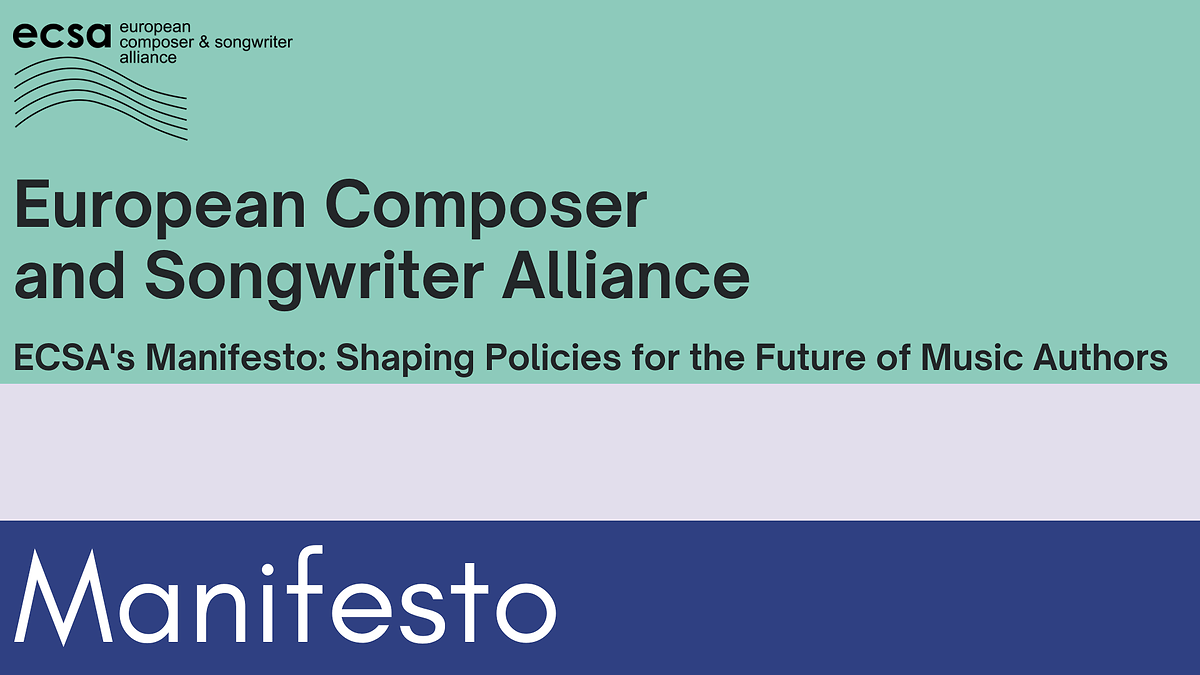21 October 2024
Press release: ECSA publishes its Manifesto to place the needs and priorities of music authors at the heart of Europe’s future policies

As the European Union is now reflecting on its policy priorities for the next five years, the European Composer and Songwriter Alliance (ECSA) publishes today its Manifesto. With 19 concrete recommendations, ECSA’s Manifesto aims to shape policies at the European level to improve the lives and working conditions of music authors, while supporting the growth and sustainability of the entire music sector.
In today’s digital economy, our members face various critical issues, including AI companies using their works without consent or transparency, dismal streaming royalties, unfair contractual practices, and a pervasive lack of transparency and accountability across the music industry. In the past years, EU institutions and several European countries adopted various recommendations and actions to tackle those challenges.[1] However, policymakers now need to deliver on their commitments to ensure more fairness for music creators across the music sector. With this manifesto, ECSA asks policymakers to turn these initiatives into reality, provide a sustainable future for composers and songwriters, and send a strong signal to future generations who who aspire to write, compose and create – while be fairly remunerated for their creations.
As outlined by ECSA President Helienne Lindvall: “Today, composers and songwriters are subject to AI companies using their works without consent nor transparency, a broken music streaming landscape, and unfair contractual practices – making it harder and harder to survive even for music authors whose works are enjoyed far and wide. With this manifesto, we want to convey concrete recommendations for policy makers to enact in order to tackle these challenges, so that we can achieve an equitable, sustainable – even thriving – future for European music creators.”
[1] The European Parliament’s report on music streaming, its resolutions to improve the social and working conditions of artists and workers and prevent unfair contractual practices such as buyouts in the cultural sector, and the One Voice for European Music initiative, supported by various Council Presidencies.
